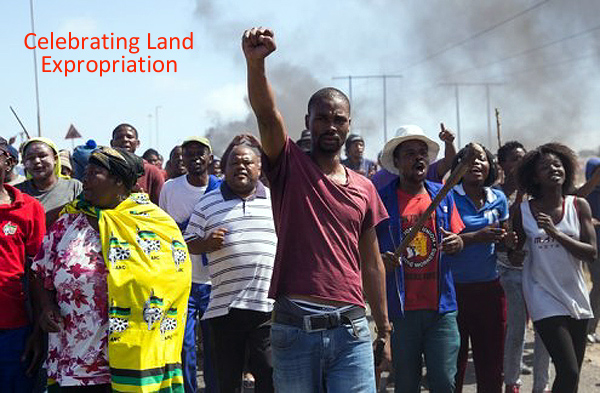 Can you imagine the day when Jamie Dimon’s yacht is taken away from him by a socialist port authority? Or better, when that cottage on the lake you only used a couple times last summer is expropriated by the local county?
Can you imagine the day when Jamie Dimon’s yacht is taken away from him by a socialist port authority? Or better, when that cottage on the lake you only used a couple times last summer is expropriated by the local county?
Yesterday’s decision in South Africa to proceed with changing the constitution to allow for land expropriation without compensation shows the desperation that societies which have progressed too far down the path of income inequality will go for recompense. Better watch out. It’s coming soon to your nearby authority.
The widely used “Gini” index of income inequality puts South Africa at the very worst in the world.
This is not surprising, and by the way easily discernible to the visitor. The suburb of Sandton looks like Mar-a-Lago on steroids. There’s hardly a car on the road that isn’t a Benz or BMW.
Yet across the country in countless dilapidated towns, villages and overcrowded slums outside the cities live millions with little or no water, intermittent electricity, no trash pickup and few if any vehicles much less Benz’ or BMWs.
This doesn’t mean, though, that South Africa’s poorest are the poorest in the world – hardly so, although this metric is extremely hard to measure. But just based on the World Bank’s threshold of $1.90 per person per day for abject poverty, few of South Africa’s poor are anywhere near that.
And in terms of overall GDP, South Africa ranks 55th from the bottom of 126 measured countries. That’s the clue that the difference between its poorest and richest is so large.
So it’s the disparity – not the levels of richness or poorness – that triggers the bomb. It’s always disparity rather than the highest or lowest actual levels that foments any kind of social trouble.
It’s not true, as was reported in many places yesterday, that South Africa will begin expropriating land. Tucker Carlson said so, by the way, months ago and he would still be wrong.
The Joint Constitutional Committee – a first step in making any constitutional change – did so recommend yesterday, but now a long process begins with many possible obstacles.
In fact some consider it an election trick. National elections are coming up and the party in power, the ANC, is rapidly losing popularity. This move will ramp up base support.
After the election Parliament must actually draw up the legislation. That will be debated and amended and perhaps forever stalled. If passed there follows a lengthy period of implementation during which many court battles are expected.
If everything were to go just as current proponents hope, it will be 3½-4 years before actual expropriation began. Consider what’s happening to Brexit, and that’s been less than two years.
As you would expect, there is tremendous pushback from the elite and wealthy in South Africa. But I think it’s fair to say it isn’t as loud inside the country as out.
In fact some very conservative farmers are trying to end-run an ultimate and actual expropriation by figuring out ways to get rid of their excess land, now. Many of these have turned into brilliant PR moves that have attracted the foreign press.
The fact is that land is an appropriate issue for extraordinary attention in South Africa. Many whites obtained their land through illegal apartheid expropriation. Expropriation of their land, now, would be simply a remedy to the original injustice.
Others – especially a handful of very important churches – hold massive tracks of unused land. Unlike both the U.S. and Canada which have negotiated massive settlements with their original indigenous peoples, South Africa has done nothing.
Something had to explode. The difference between those who have less and those who have more has reached the breaking point in South Africa, as it will round the world eventually. What happens in South Africa is a harbinger for almost everywhere else in the world.